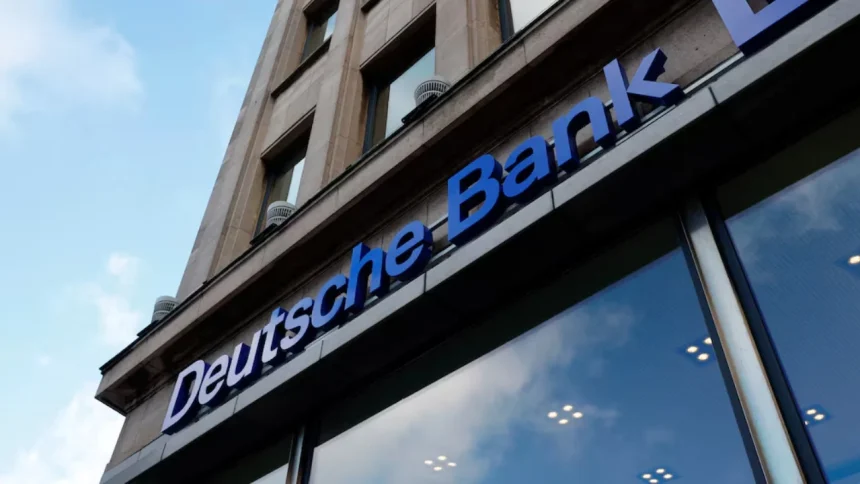Deutsche Bank has announced a major reshuffle of its global investment banking leadership as part of an effort to accelerate deal-making and achieve critical financial targets for 2025. The move establishes a regional management structure aimed at improving efficiency and reducing dependence on volatile fixed-income trading.
Effective immediately, Pierpaolo Di Stefano will oversee origination and advisory for Europe, the Middle East, and Africa—excluding Germany, Austria, and Switzerland—while Berthold Fuerst takes charge of that DACH region. In the Americas, origination and advisory responsibilities are being handed to Jeff Cady and Bruce Evans, with Mayooran Elalingam appointed head for the Asia-Pacific region.
This restructuring marks the first major organizational change under Alison Harding‑Jones, who assumed her role earlier this year as global head of origination and advisory and co-head of the investment bank following Mark Fedorcik’s retirement. Deutsche Bank officials say shifting from a product-based to a region-based model will simplify decision-making pathways and position leadership closer to regional market opportunities .
The bank’s move comes amid slowing global deal activity and persistent economic uncertainty, including trade tensions and U.S. tariffs. First-quarter revenue in origination and advisory fell approximately 8%, though Chief Executive Christian Sewing emphasized that many transactions have been delayed, not cancelled, calling 2025 a “year of reckoning” to meet profitability goals.
Deutsche Bank’s heavy reliance on fixed-income trading—87% of investment banking earnings in Q1—served as another catalyst for the reorganization. By bolstering its advisory and capital markets capabilities under new regional structures, the bank hopes to both diversify its revenue streams and capitalize on recovering M&A momentum.
Market observers view the reshuffle as a signal that Deutsche is intensifying its push to restore dealflow and profitability ahead of its longer-term goals. CEO Sewing flagged that strategic tweaks and cost adjustments for 2026 and beyond remain on the table, underlining that “nothing is off limits”.
Looking ahead, investors and analysts will watch closely to see if the new leadership framework leads to faster execution of regional deals and stronger advisory performance, helping Deutsche regain footing among the world’s top-tier investment banks.







